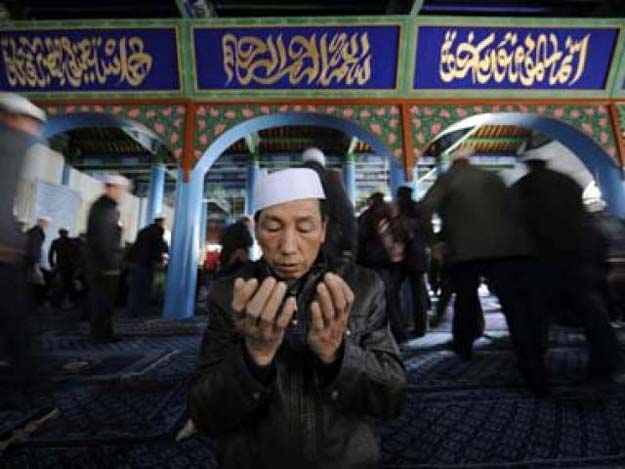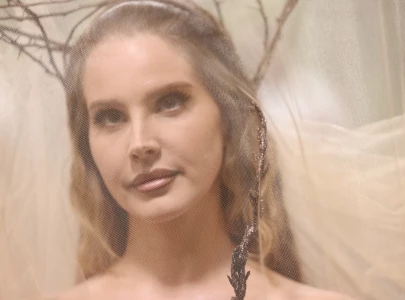
Having lived in the Linxia city for two years, Matthew S Erie, a trained lawyer and ethnographer who teaches at Oxford University, explores how Chinese Muslims interpret Islam. Along with the Turkic Uighurs, the Hui are one of 10 officially recognised ethnic groups that practice Islam, making the total population of Muslims in China around 23 million, according to the 2010 government census.
China restricts Ramazan fasting in Muslim region
In his recently published book China and Islam: The Prophet, the Party, and Law, Erie looks at how Sharia is implemented among the Hui and what motivates the Chinese people to convert to Islam. “I met a Han labourer who worked on the railway. He had injured his arm and did not receive benefits. He became disaffected and found solace in Islam. He was also looking for a wife. Poor Han men sometimes convert if they’re looking for a wife, because there are Hui networks that will help out. Hui will help you convert and marry,” Erie explained.
The ethnographer believes there is a huge spiritual hunger and need for traditional values which is attracting Chinese people towards Islam. “The vacuum created by the end of Maoism has led to a commercialisation of Chinese society that is in its own way spiritually void. There’s no question that people are searching for meaning. What’s really important is that some people are doing it through Islam. These are people who were born Hui but not part of that spiritual tradition, and who are returning to it. They find a group of fellow believers and discover strength in that community. Many of these people travel to places like Linxia and study Islam for the first time in their lives.”
According to Erie, China had 20,000 mosques in 1994 and 34,000 in 2010, which speaks volumes about the growth of Islam in the country. “The region from Lanzhou to Linxia is often called the Quran belt. When you’re on the highway, it’s impossible to go a minute without seeing a new mosque under construction. What’s driving this is an accumulation of wealth, and people are willing to allocate some of it, because they see mosques as a center of their community. It’s not just where people pray or study but also where they socialise and share news and gossip.”
Hotels in Chinese metropolis turn away Pakistanis, other Muslims
The ethnographer explains how the Hui apply Sharia in their daily lives. “The parameters are wide, from dietary considerations to interpersonal relations. Some of it is deciding what is halal food. But it’s also what we would call torts in the US — when someone driving a vehicle strikes a pedestrian. A lot of time the authorities will ask the mosques to aid in evidence-gathering. We have a localised sense of Hui morality, that may be inflected with Sharia and that might affect the outcomes — the amount of the settlement, for example. The ahongs [Hui term for cleric] will help determine an amount.”
However, this consultation has its limits as it is not used in criminal law. Still, the state needs local clerics. “If the state were to consciously exclude the local religious authorities, it would lose legitimacy in the eyes of the believers.”
China looks at Islam differently than the way it does Taoism or Buddhism, Erie believes. “It makes it hard for them [Muslims] to participate in even a nationalistic revival — even slogans of Xi Jinping, such as the Yidai Yilu [the One Belt, One Road initiative to link China to Central Asia and South Asia through overland and sea routes]. I was in China this summer and everyone was talking about it, but the question is if Muslims can participate in this. That would be good for the state, but the anxieties are great, too.”
Chinese academic defends beer festival in Muslim region
Erie also contests the popular thinking that the Hui are “good” Muslims, while the Uighurs are the “bad” ones, engaged in terrorism. “The Hui have had numerous uprisings, most notably during the second half of the 19th century from Yunnan to Gansu and beyond. Not all of these were necessarily against the state. There were a number of local conflicts that often snowballed. They are not submissive lackeys of the state.”
Although the Hui are pushing for more autonomy and decision-making ability, they are not always allowed to, according to Erie. “In this, I think their struggles parallel those of Muslim minorities elsewhere — in France, Germany or the US — but in China they do not have recourse to formal law, political institutions or even civil society. Rather, they rely on their ties to the government and increasingly transnational networks to protect their personal and collective interests.”
This article originally appeared on New York Times

1732569774-0/Baymax-(2)1732569774-0-165x106.webp)







1732105641-0/BeFunky-collage-(78)1732105641-0-270x192.webp)







COMMENTS (10)
Comments are moderated and generally will be posted if they are on-topic and not abusive.
For more information, please see our Comments FAQ